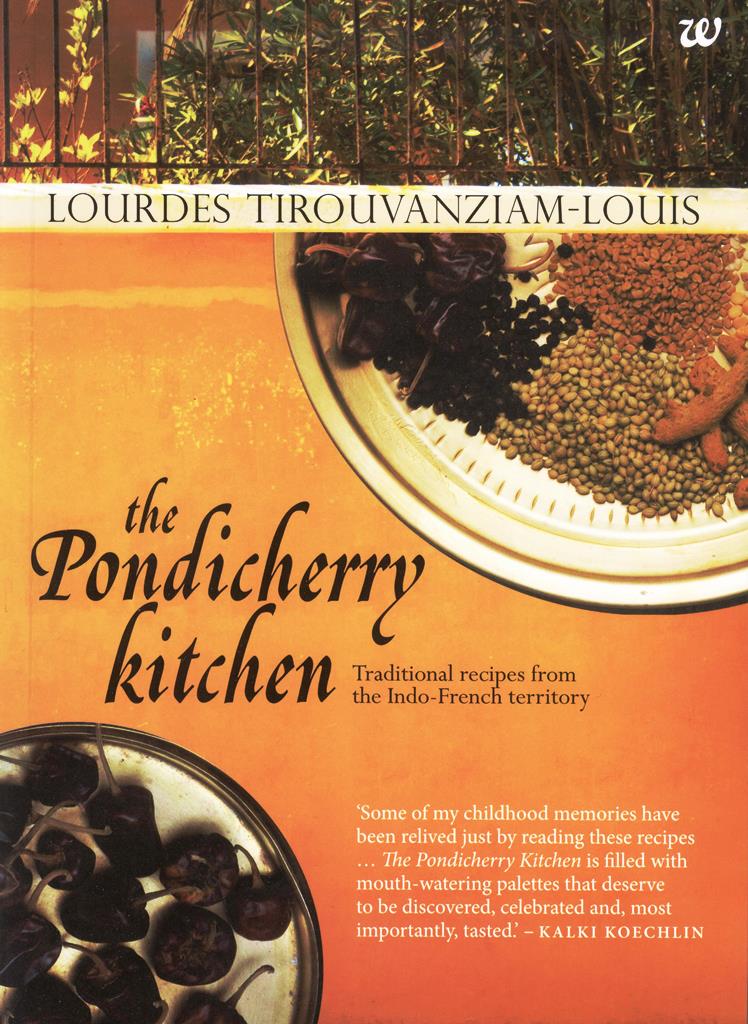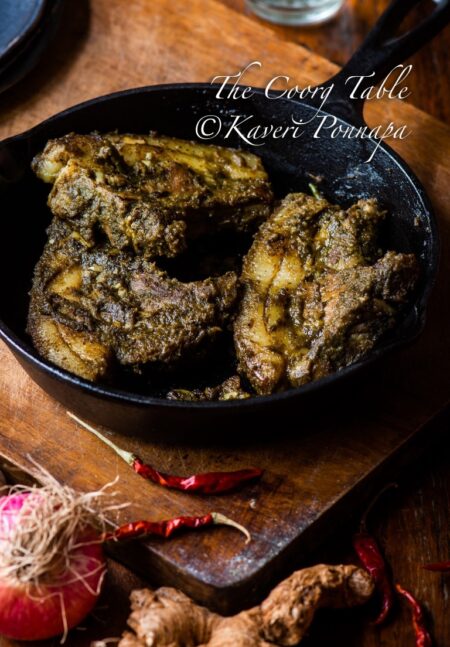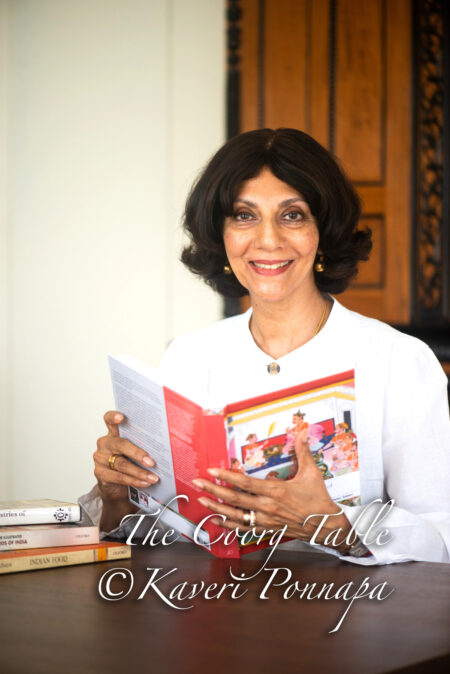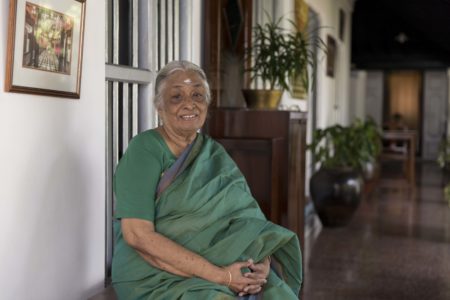In June of this year I received a beautiful gift in the post from a friend, Lourdes Tirouvanziam-Louis, the author of Cuisine Traditionnelle de Pondichéry. Its chili orange cover showed a woman seated on the floor working with a traditional vegetable slicer. It turned out to be one of the most fascinating cookbooks I had read, exploring the culinary expressions of the interaction of Tamil, Portuguese, Danish, Dutch and French peoples over four centuries. Classic Tamil pacchadis and sambar, petits patés that use ghee and coriander and Marathi kurmas from the soldiers and mercenaries of various armies all mingled seamlessly on tables in this idyllic oasis of high-walled, colonial, French style mansions, wrought iron balconies and beaches. The names of traditional Tamil dishes sat quaintly in the French and I spent many happy hours immersed in the exotic and at the same time, strangely familiar recipes.
Lourdes, who combines degrees in French and English, as well as a Ph.D in sociolinguistics with a passion for cooking, is well placed to record the culinary impact of the almost three hundred years of French rule over this territory. An English edition of this cookbook, The Pondicherry Kitchen, published a few weeks ago, comes as a welcome addition to the growing literature on regional cooking traditions. The recipes are windows into the history of this region, very often hybrid, localized and simply delicious. Millagutany Supu in Pondicherry is not the traditional pepper water that you expect, but a delicate coconut base for an anchovy soup; Meen Pujabaisse is the classic French bouillabaisse, transformed with local twists of flavour; Ragou is an interpretation of Ragoût of Lamb. Poisson Rôti au Citron goes by another name – Meen Elumicham Pajam Roast, and carries Indian accents of ghee, peppercorns and chillies. Following the recipes, you back and forth through the history of the region – Chicken Vin D’Ail takes us right back to the first Europeans who settled here, the Portuguese. The name of this dish, so close to the Goan Vindalho, is thought to refer to wine and garlic, or possibly, the vinegar introduced by the Portuguese.
Pondicherry was at the crossroads of trade routes to South East Asia. People from this region travelled extensively and food travelled back with them, putting down roots in a new place, like the Malaya Chicken Curry. Dried meat- upukandam– carried on long sea voyages, turkey, duck and recipes for once popular wild game all feature in a wide range of unusual and tasty combinations. All the new dishes were embraced by local flavours and cooking techniques and made unique. There are generous sections on chicken, lamb and seafood, as well as chutneys, pickles and sweets.There is also its very own spice blend, like every other region of the country. Vadavams, similar to the Chettiar karivadagams, are an essential ingredient in Pondicherry cooking. They have a distinctive flavour of their own, and the process of making them evokes an entirely different pace of life, when spices were steeped in oil and sun-dried over a month, concentrating their flavors and making them a long lasting staple in the kitchen.
The Pondicherry Kitchen is set out very clearly with concise measurements and instructions making the recipes easy to follow. Lourdes has sought out recipes from old Pondicherrian families, coaxed them out of great-aunts, friends and unearthed them from manuscripts. They have all been thoroughly tried and tested, and thanks to her efforts, we don’t have to puzzle over weights and measures that deal in patnam padis, maganis and ajakous! My only regret is that the English edition does not have the pleasing line drawings, sketches and kolam patterns of the French edition. With such a wealth of interesting recipes and unusual flavours, this is my choice of Indian cookbook published this year. I look forward to acquainting myself better with the cuisine of Pondicherry.
The Pondicherry Kitchen, By Lourdes Tirouvanziam –Louis
(Westland, 2012) Rs.395. This article appeared in Food Lovers magazine,
Image Credits: K.P.Ponnapa




